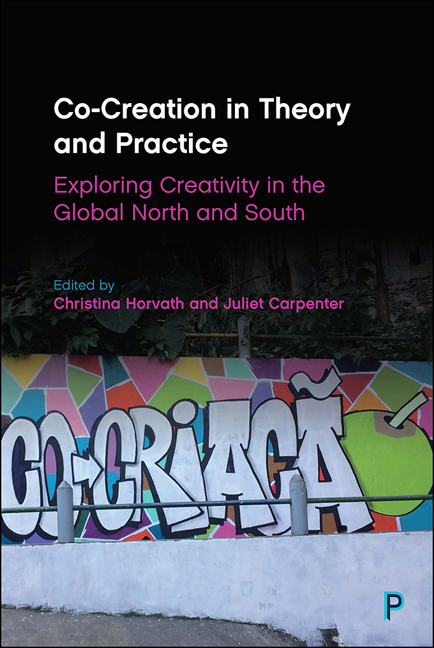10 - Can Literary Events use Co-Creation to Challenge Stigmatisation?
Published online by Cambridge University Press: 18 March 2021
Summary
Introduction
This chapter takes a comparative approach to two initiatives, one from the Global North and one from the South, that have been developed by writers to bring literary events to peripheral neighbourhoods. The Dictée des Cités, a spelling competition organised by Rachid Santaki in French cities since 2013, and the Literary Festival of the Urban Periphery (FLUP), curated by Julio Ludemir and Écio Salles in Rio de Janeiro's favelas since 2012, were not conceived as Co-Creation events but are founded on similar principles and processes, insofar as they promote art and creativity in marginalised urban areas and seek to challenge the perception of these neighbourhoods as places devoid of the production and consumption of literary texts.
The aim of this chapter is therefore to compare the two artistdriven events and explore their respective strategies to engage with local communities and broader audiences. Based on interviews and ongoing dialogue with the organisers of both events, this chapter seeks to tap into their extensive experience of knowledge production with communities to see what Co-Creation can learn from their practices and how it can inspire them in return. A secondary aim is to evaluate how collaborative literary events adapt to specific local challenges in the Global North and South.
Chikako Mori (2012) sees the persistent overlooking of scriptural practices in the urban margin as a deliberate denial of highbrow cultural forms in stigmatised areas. She reminds us that French banlieues are often represented in public (political, media and academic) discourses as places that fall short of a written culture recognised and validated by the establishment. According to Mori, the non-recognition of banlieues as places of reading and textual production comes from a desire to reaffirm a longstanding divide between high-and lowbrow cultures, based on the understanding that writing is not quite a cultural practice like the others, insofar as it has always been perceived and used to mark the line separating ‘us’ and ‘them’, both inside the French Republic (fight against regional languages) and outside (colonial ideology). In this representation some are perceived as ‘literate’, ‘civilised’, ‘enlightened’, ‘masters of themselves’ and others as ‘uneducated’, ‘barbarians’, ‘obscure’, ‘uncontrollable’ (Mori, 2012: 75, author's translation).
- Type
- Chapter
- Information
- Co-Creation in Theory and PracticeExploring Creativity in the Global North and South, pp. 155 - 172Publisher: Bristol University PressPrint publication year: 2020



